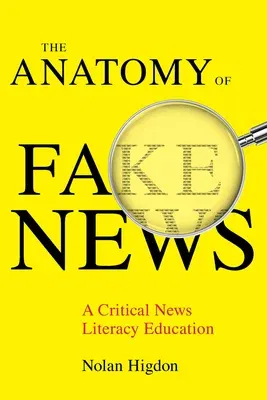Nolan Higdon
(Author)The Anatomy of Fake News: A Critical News Literacy EducationPaperback, 4 August 2020

Qty
1
Turbo
Ships in 2 - 3 days
In Stock
Free Delivery
Cash on Delivery
15 Days
Free Returns
Secure Checkout

Print Length
248 pages
Language
English
Publisher
University of California Press
Date Published
4 Aug 2020
ISBN-10
0520347870
ISBN-13
9780520347878
Description
Product Details
Author:
Book Format:
Paperback
Country of Origin:
US
Date Published:
4 August 2020
Dimensions:
22.61 x
14.99 x
1.52 cm
ISBN-10:
0520347870
ISBN-13:
9780520347878
Language:
English
Pages:
248
Publisher:
Weight:
326.59 gm